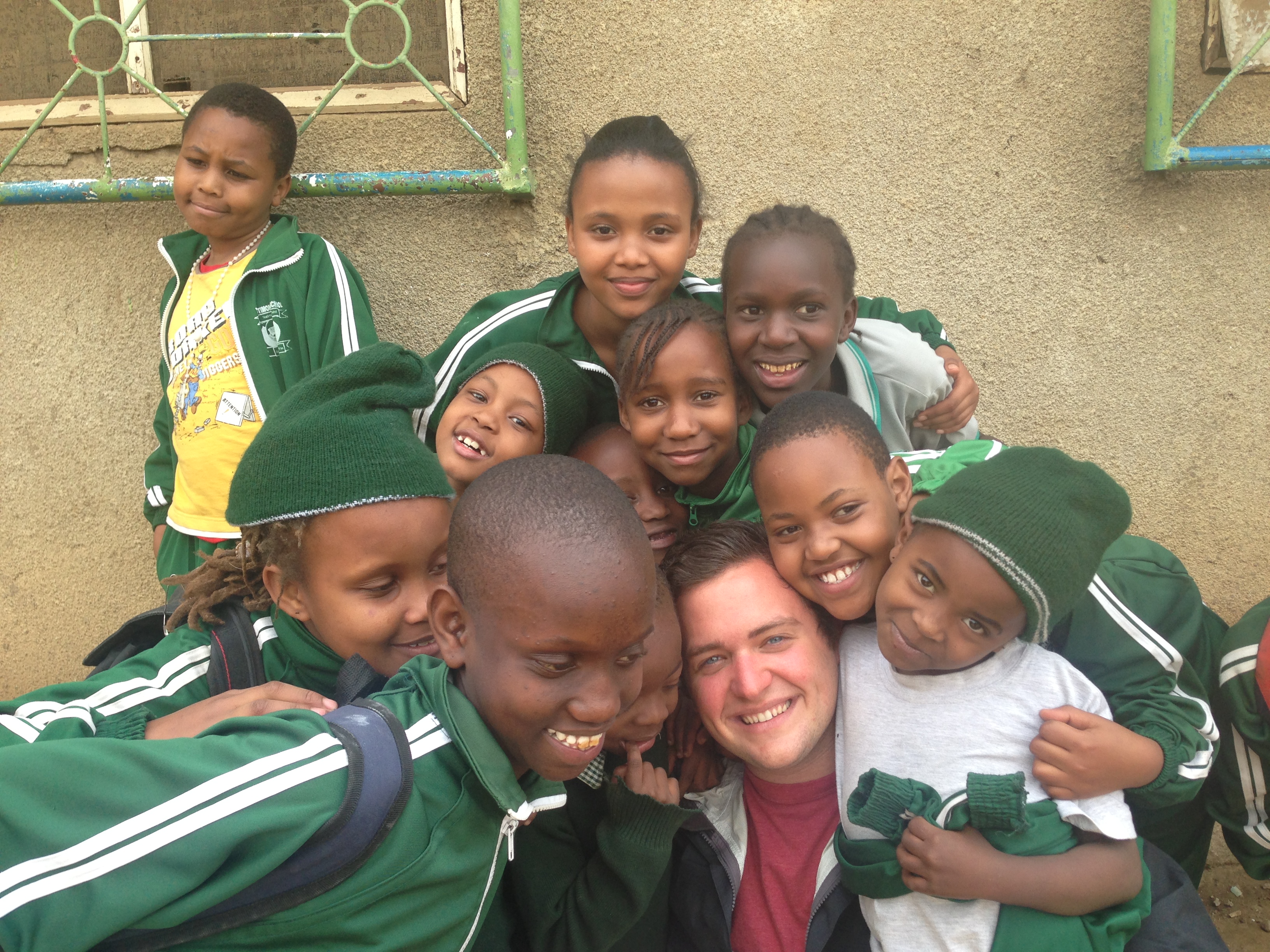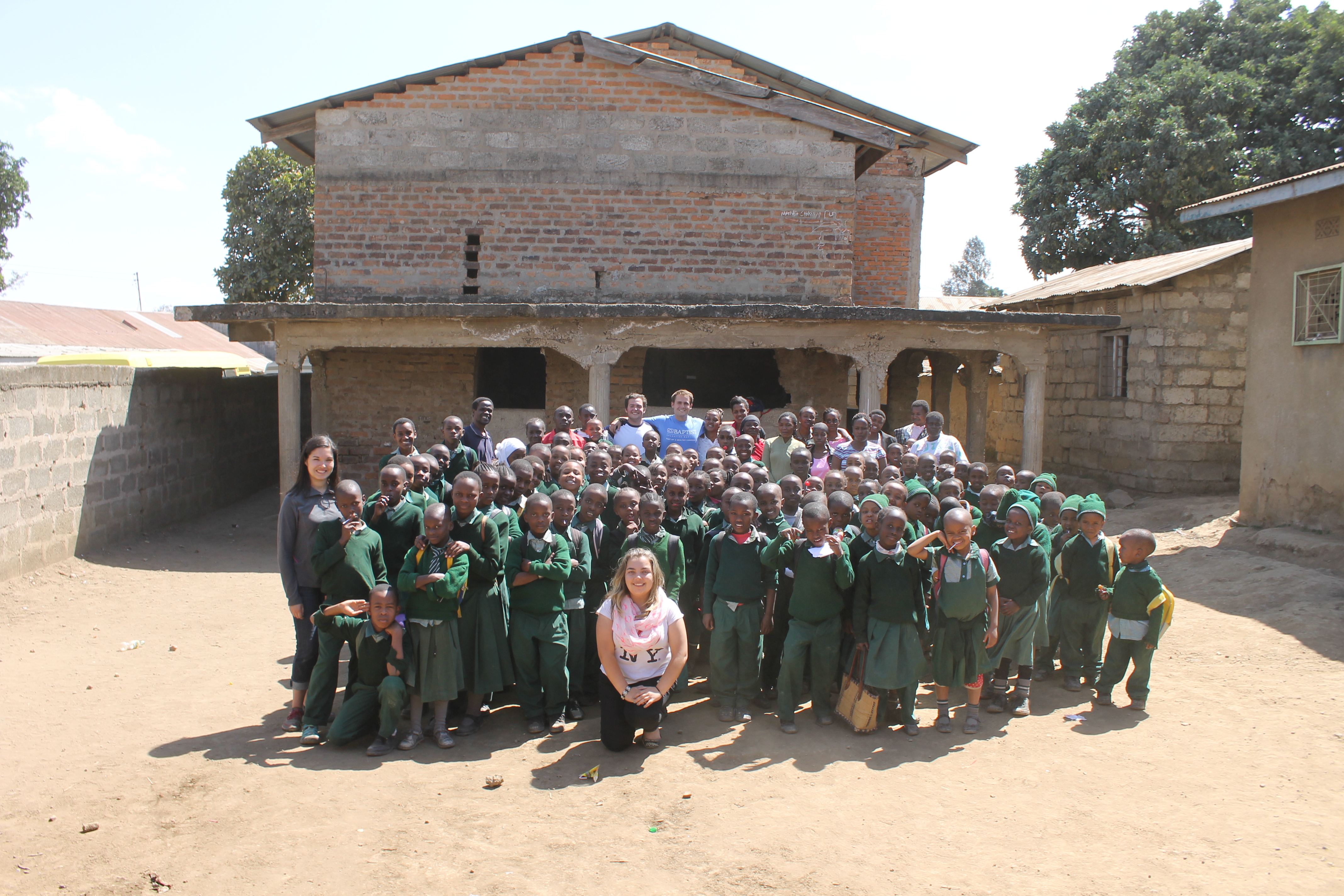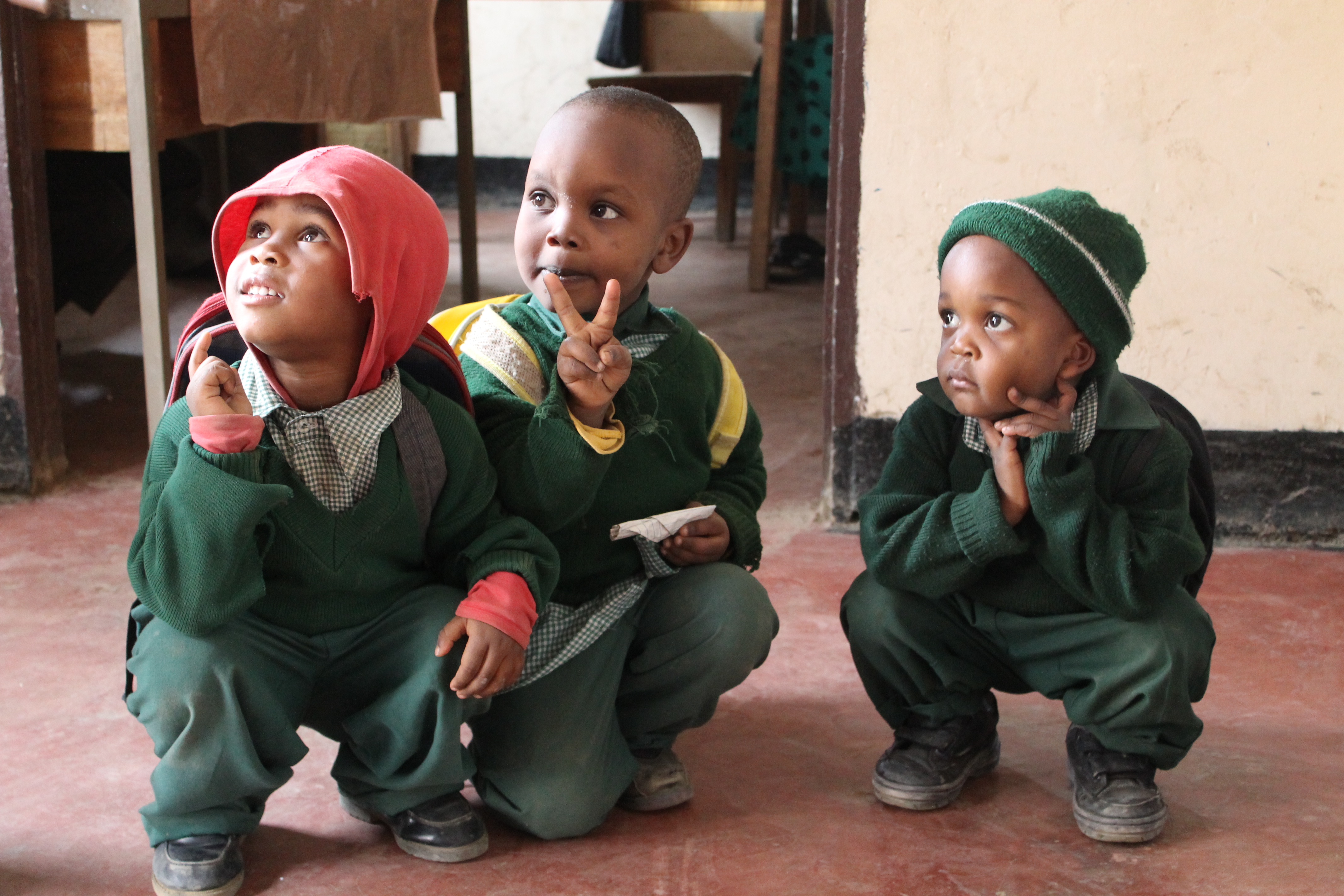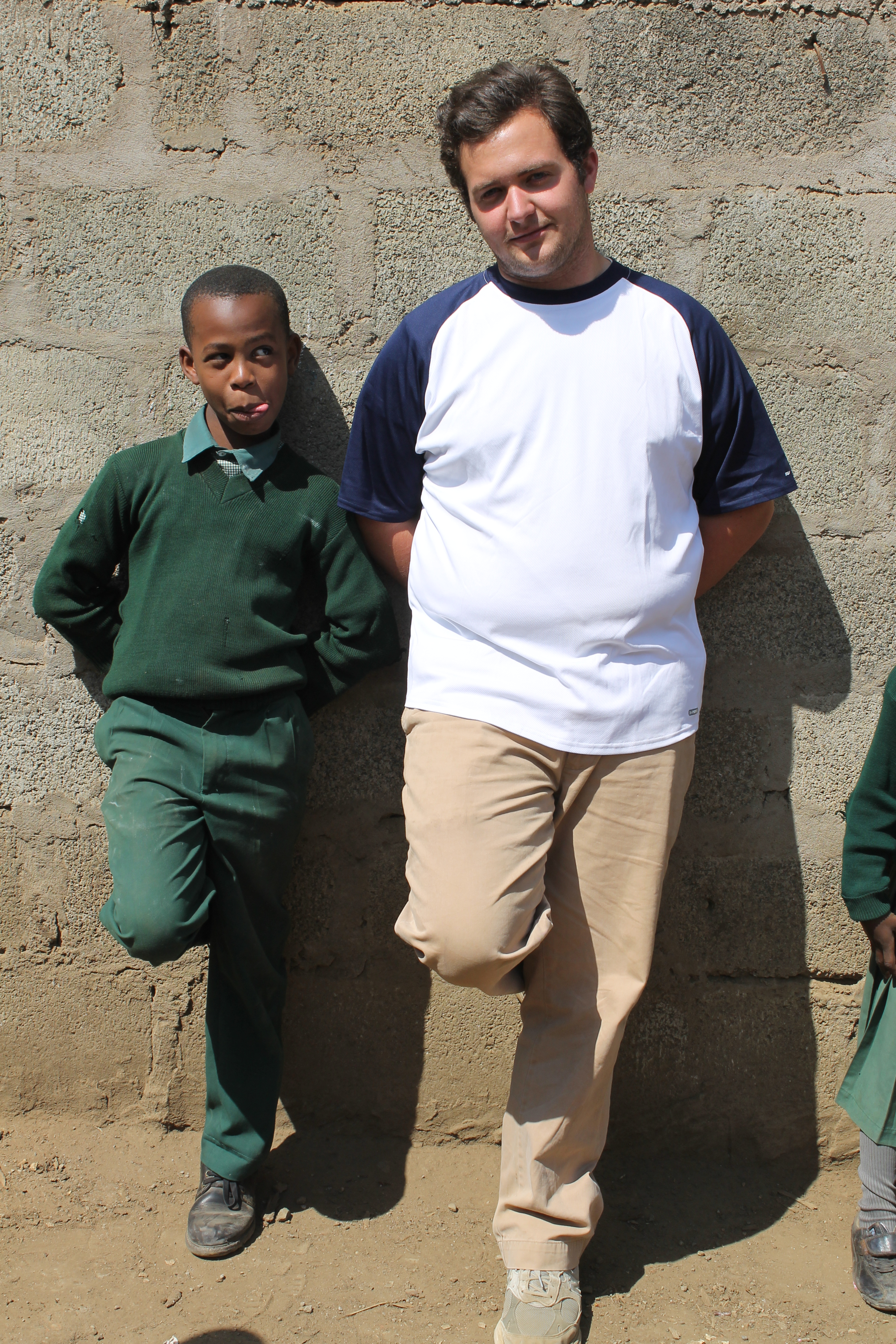Africa calling: Meigs County man goes to Tanzania to teach, but learns just as much
Thursday, May 8, 2014
George was 12, a self-described "tough guy." And he was laughing at another guy's tears.
Collin Lee Thompson, red-eyed and choked up, was saying goodbye to people he'd spent six weeks among, living with them, eating in their homes, teaching their children, including George. A native of Decatur, Tenn., Thompson was flying home from Arusha, a city of about 400,000 in northeast Tanzania. He'd spent his time in Africa at the Testimony School, a dirt-floored building with no electricity or running water and windows that are just open holes punched through brick walls.
It was not an easy goodbye.
"I was a mess; I was crying," says Thompson, 20, a senior at the University of Tennessee, "and George was kind of poking fun at me, saying 'Boys aren't supposed to cry' and 'I'm a tough guy.'"
But when Thompson reached the gate leading out of the school grounds, George's stoic demeanor broke.
"He came running at me, tears streaming down his face, and jumped up into my arms," Thompson recalls. "And we cried for about 10 minutes."
After that first visit to Arusha in June 2013, Thompson returned for a shorter visit last Christmas and, on Thursday, he's flying there again - a trip that, depending on the airline and route, takes at least 24 hours and sometimes 48 - for a two-week stay. He'll be returning to the Testimony School, where he teaches English, life skills such as personal hygiene and other lessons to students between 3 and 13 years old.
"The question I get asked the most is: Why? Why do you go over there?'" he says. "I think there are two commandments to live by: Love God and love your neighbor. If we get those two things right, everything else works itself out."
It's a 3-mile hike each way to get from where he stays in Arusha to the school; baths are "bucket baths" every other day with water fetched from a well. Breakfast is chai tea with goat milk, maybe a banana or mango, perhaps a fried doughnut. Lunch and dinner often is goat.
"I've had it every single way it can be prepared," he says with a laugh.
Thompson, who will earn a double major in political science and history from UT in December, had made church-mission trips to Guatemala and Haiti before traveling to Africa. And, while the crushing depth of poverty in those two countries is pretty much equal to Africa, he found something in Arusha that he hadn't found elsewhere - joy.
"Something that has drawn me back to Africa is the spirit and kindness of the people," he says. "In Haiti, for instance, the people there understand their situation is substandard, and they're very depressed. In Africa, they understand that their lives are not the quality of life that I have in the U.S., but they don't let that depress them. They try to make the best of what they have; they're happy-go-lucky people.
"It has made me realize that I need to approach any situation I'm dealt with a positive attitude and spirit as well."
His trips cost about $3,500 each, which he pays upfront then is reimbursed, in part, by his church, Decatur United Methodist. While in Africa, he posts YouTube videos so church members can see him interacting with the children. The first one he posted, though, wasn't quite what they expected.
"He was teaching them 'Rocky Top,'" laughs Hugh Bryan, pastor at Decatur United Methodist.
The ultimate takeaway from the videos, however, is Thompson's deep connection with the students and how much he cares about them, Bryan says.
"I think the primary thing is his enthusiasm and making a personal connection with the children over there," says Bryan, who also pastors at Concord Methodist Church in Decatur. "The thing I see is that he's really committed to trying to help those kids."
At the private school, created in 2000 by principal and teacher Juvin Kuyenga, a native of Arusha, the kids - generally 10 to 12 per classroom - already speak pretty good English, he says, but school supplies are virtually nonexistent. There's a little paper to be had, a "blackboard" that's a piece of plywood painted black and usually about one textbook per grade.
Technically, it costs $250 a year to attend the school, but most nearby residents only make about a $1 a day if they're lucky, Thompson says, so Kuyenga takes whatever the parents can afford to pay. Sometimes that's nothing.
"Tanzania has public schools operated by the government," Thompson says, "but they're so substandard, not going to school is about as good as going to a public school."
While the students are eager to learn, he says, "they struggle with imagination and dreaming and creativity."
"In kindergarten I knew what I wanted to be, but they can't even do that in the seventh grade, their situation is so grim. All of them fall below the poverty line on Tanzanian standards; several of my students have lost one parent to HIV."
That includes George, whose father was an attorney for the government, but died after contracting HIV. "In their system, the mother doesn't get the dad's belongings, the brother does, so she was left with nothing to raise her son."
As a treat one night, Thompson took George to a Mexican restaurant, where the boy ordered a burrito and a Coca-Cola, a luxurious treat in Tanzania. Then, for dessert, the luxury continued with a visit to a nearby ice cream shop.
"It was the first time he'd ever had a meal in a proper restaurant," Thompson recalls.
Bonding with people like George and other in Arusha has changed Thompson's vision for his own future after college.
"I always wanted to manage political campaigns, now I want to be more in policy and change laws and create laws that will help people like my students, that will have more of a global impact."
Law school is a possibility, he says, but he may also take a couple of years off and this summer is applying to the Peace Corps.
"And I've not ruled out the possibility of living in Arusha for a couple of years."
One task he has during his current visit to Arusha is to check out the cost of building a real school for Testimony, something with electricity and water and books. Bryan says Decatur United Methodist may be able to help pay for some of it, but they need to know the price first.
Thompson understands how much a real school would mean for his students, who appreciate even the smallest gesture, the tiniest bit of attention or kindness, especially from someone who lives in the United States.
"They're so willing to absorb everything that you tell them; they have a high opinion of us and Westerners in general, and they're so grateful for our dedication to them, that we're spending our time with them.
"What really struck me is, when I went at Christmas, I took toothbrushes and toothpaste, and they were so excited," he recalls. "The simple gifts put a smile on their face."
Contact Shawn Ryan at sryan@timesfreepress.com or 423-757-6327.




